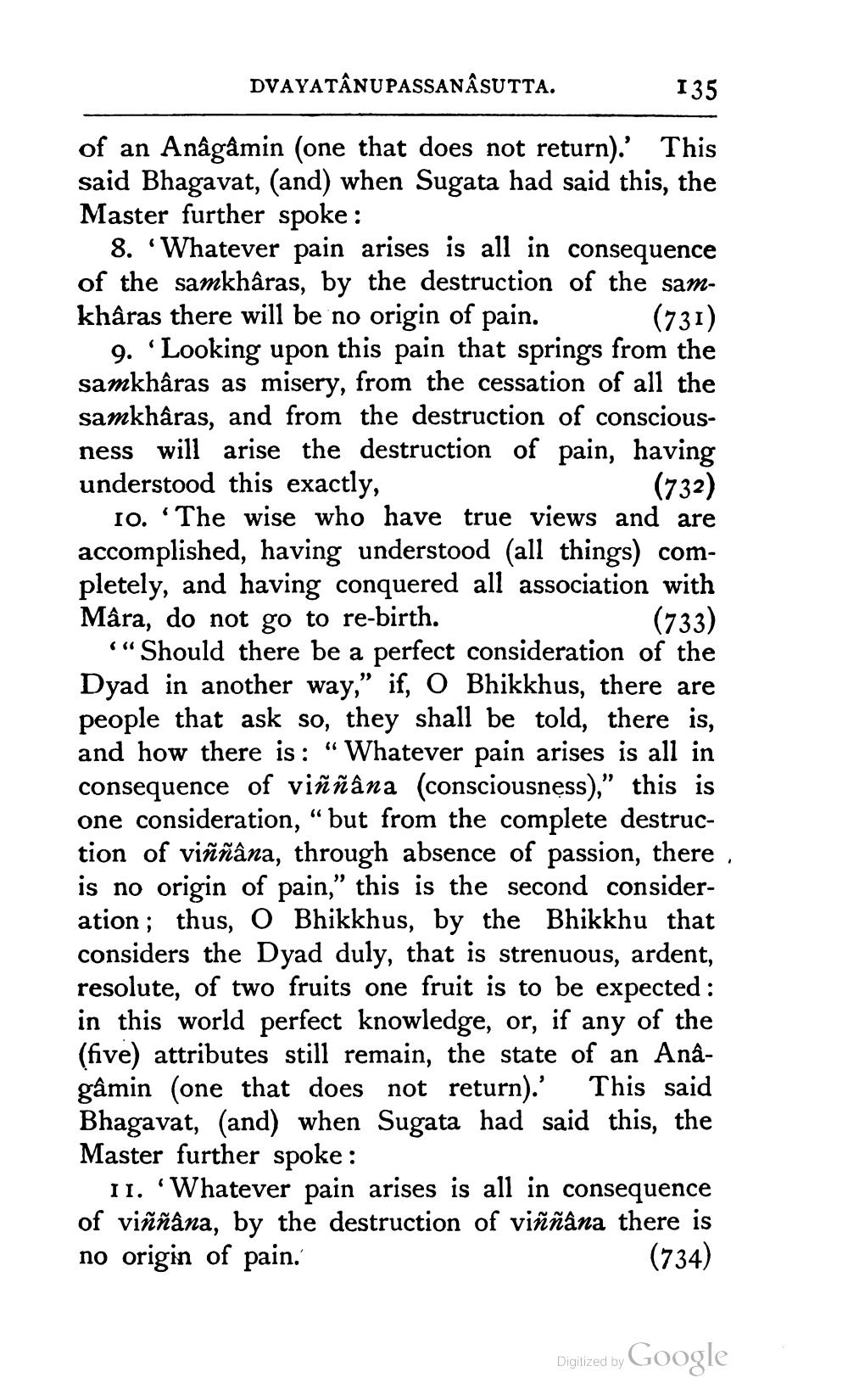________________
DVAYATÂNUPASSANASUTTA.
135
of an Anâgâmin (one that does not return).' This said Bhagavat, (and) when Sugata had said this, the Master further spoke :
8. Whatever pain arises is all in consequence of the samkhâras, by the destruction of the samkhâras there will be no origin of pain. (731)
9. Looking upon this pain that springs from the samkhâras as misery, from the cessation of all the samkhâras, and from the destruction of consciousness will arise the destruction of pain, having understood this exactly,
(732) 10. “The wise who have true views and are accomplished, having understood (all things) completely, and having conquered all association with Mâra, do not go to re-birth.
(733) -“Should there be a perfect consideration of the Dyad in another way," if, O Bhikkhus, there are people that ask so, they shall be told, there is, and how there is: “Whatever pain arises is all in consequence of viññana (consciousness),” this is one consideration, “but from the complete destruction of viññâna, through absence of passion, there, is no origin of pain," this is the second consideration ; thus, O Bhikkhus, by the Bhikkhu that considers the Dyad duly, that is strenuous, ardent, resolute, of two fruits one fruit is to be expected: in this world perfect knowledge, or, if any of the (five) attributes still remain, the state of an Anagâmin (one that does not return).' This said Bhagavat, (and) when Sugata had said this, the Master further spoke:
11. Whatever pain arises is all in consequence of viññana, by the destruction of viññana there is no origin of pain.
(734)
Digitized by Google




